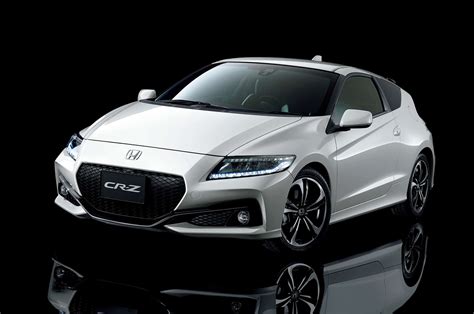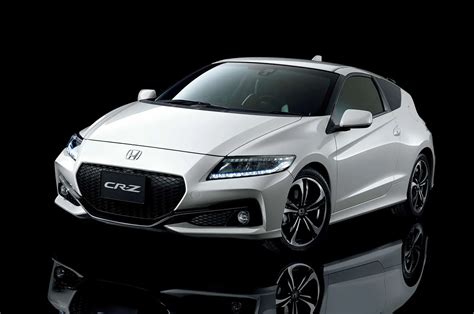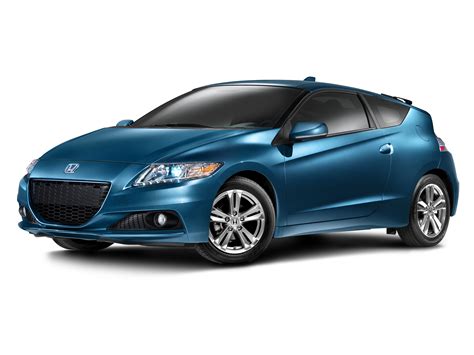Honda Cr-z hybrid problems

The Honda CR-Z is a sport compact hybrid electric car manufactured by Honda and marketed as a "sport hybrid coupe." The CR-Z combines a hybrid gasoline-electric powertrain with traditional sports car elements, including a 2+2 seating arrangement (excluding North American models where the backseat is removed) and a standard 6-speed manual transmission. The CR-Z is regarded as the spiritual successor to the second-generation Honda CR-X in both name and exterior design.
In the U.S., the CR-Z is one of the least polluting hybrid vehicles available and is rated as an Advanced Technology Partial Zero Emissions Vehicle (AT-PZEV) as defined by the California Air Resources Board (CARB). The CR-Z is the third gasoline-electric hybrid model offered by Honda (after the 2000–2006 Insight and 2003–2005 Civic Hybrid) that can be equipped with a manual transmission, and the only one in its class.
The CR-Z is the sixth unique version of Honda's Integrated Motor Assist (IMA) technology since the technology was first launched in the first generation Insight 3 door hatchback. Sales of the CR-Z began in Japan in February 2010. Sales in the U.S. began in August 2010, and production ended by the end of 2016.

Social links
Honda Cr-z hybrid model years


Common Honda Cr-z hybrid problems
The Honda CR-Z, a hybrid sports coupe introduced by Honda in 2010, is known for its unique design and compact size. While it did not achieve the same level of popularity as other Honda models, it has a loyal following due to its sporty aesthetics and hybrid efficiency. However, the CR-Z has faced several common problems based on complaints from owners.
One of the most prevalent issues with the CR-Z is related to its body structure. Multiple owners have reported problems with the door handles, both on the driver and passenger sides. These faulty handles, especially when they cannot open the doors from the outside, pose a significant inconvenience and potential safety concern. Some people have also reported issues with the door locks not responding to both the interior buttons and the key fob, indicating a potential widespread issue with the lock actuators.
Another concern is rusting, particularly on the inside of the hatchback. Rust can compromise the vehicle's structural integrity over time and may point to potential issues with material quality or water sealing. This can be a significant problem, as it can lead to more extensive and expensive repairs if not addressed promptly.
The CR-Z's power steering system has also been a source of frustration for many owners. Some have reported a sudden and unexplained loss of power steering, which can make the car difficult to maneuver. This issue can be particularly dangerous, especially at low speeds or in tight spaces. Additionally, some owners have reported that the vehicle's engine can stall, and the hybrid system's electric motor might move the car unexpectedly in the opposite direction of the selected gear. This can be a significant safety concern, especially in traffic or at high speeds.
The CR-Z's power steering system has also been known to drain batteries prematurely, indicating potential electrical issues. Some reports have expressed concerns that the unexpected behavior of the steering system, especially in wet conditions, might have contributed to accidents. This is a significant safety concern that should be addressed promptly.
In terms of reliability, the CR-Z has been known to score well in reliability surveys. According to a 2021 reliability survey, the CR-Z puts in a near-perfect score. This shouldn't be a surprise since the Honda brand as a whole comfortably finished within the top 10 out of 32 manufacturers surveyed. It does show that, despite the extra engineering involved in the production of a hybrid system, there is nothing to fear about the long-term reliability of it.
In conclusion, while the Honda CR-Z is a unique and interesting vehicle, it has faced several common problems based on complaints from owners. These issues range from faulty door handles and locks to more significant concerns with the power steering system and battery life. However, the CR-Z has also been known to score well in reliability surveys, indicating that it can be a reliable vehicle with proper maintenance and care.

How long do Honda CR-Z hybrid batteries last?
Your Honda hybrid battery life expectancy is between 6 to 10 years or up to 100,000 miles.
Why did Honda discontinue the CR-Z?
Discontinuation. On June 17, 2016, Honda announced that the CR-Z would be discontinued at the end of the year to make room for the Accord Hybrid and Clarity.
How much does it cost to replace Honda CR-Z hybrid battery?
Labor costs are estimated between $211 and $266 while parts are typically priced around $2,480.
Is it worth it to buy a Honda CR-Z?
Honda is known for its reputation for making reliable and durable vehicles. It certainly applies to the Honda CR-Z. RepairPal says the Honda CR-Z is the 12th most reliable subcompact car out of 21 models from other brands.
Are you having problems with your Honda Cr-z hybrid?


